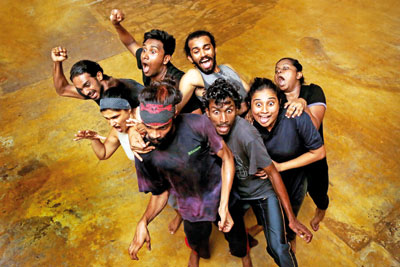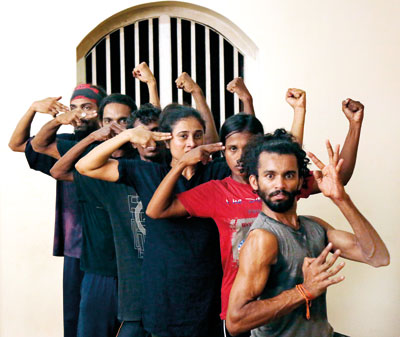A conversation across generations
 From the period of colonialism to the Second World War, the struggle for independence, the JVP insurrection, to the three decade ethnic conflict that Sri Lanka has witnessed and being there to experience it first hand, is not something many could attest to. Yet for the people of that generation, their stories relate something that our history texts could find hard to relate. It’s about learning from our past mistakes, understanding and respecting the different cultures that we live amongst. And that’s just what ‘Dear Children Sincerely’ speaks of.
From the period of colonialism to the Second World War, the struggle for independence, the JVP insurrection, to the three decade ethnic conflict that Sri Lanka has witnessed and being there to experience it first hand, is not something many could attest to. Yet for the people of that generation, their stories relate something that our history texts could find hard to relate. It’s about learning from our past mistakes, understanding and respecting the different cultures that we live amongst. And that’s just what ‘Dear Children Sincerely’ speaks of.Earlier during the week, the Mirror met up with the cast as they prepared to tour the country. It was an early morning at the Western Province Aesthetic Resort in Colombo 7. The cast had already sweated it out. I was to interview Tracy Holsinger, one of the Directors.
As she asks me to give her a moment, the cast take their places. Their routine is a short one; but wonderfully crafted, their movements delicate and tight; together it created a beautiful work of art.
Dear Children Sincerely (DCS), the concept is a conversation across generations. What can we learn from the elders in our society? The problem today, is with the older generation feeeling alienated. The project has moved ahead with the idea that we still have so much to learn from them and their experiences.
DCS has interviewed over fifty people from around the country. “These people specifically were born in the 1930s because that generation lived through colonialism, independence, the Sinhala only act, the JVP insurrections, the rise of the LTTE, the War, post conflict and the Tsunami everything in our recent history,” Tracy tells us.
It first took off as a local project, being the brain child of Ruwanthie de Chickera and her theatre group, Stages. Today, it has grown into an international project. Currently artists from Rwanda, the UK, Burundi, Palestine, Serbia, Belgium, DRC and Ireland havecommitted to develop the project parallel in their countries, while also working towards collaborative creative processes and performances. Some of those interviewed have been instrumental in moulding contemporary Sri Lankan society, Tracy says. “A lot of the traditions, the way we view things some of the social structures and our administrative structures, some of them actually created them,” she adds.
It’s a huge amount of stories. Tracy gives us a short insight into the story of an old lady, who speaks of how the Diyathalawa war camp began as a prison for South African prisoners during World War II. The camp was built in a matter of three months and according to her story, the British had captured the prisoners and brought them there.
We move on to the story of another lady, who was on the disappearances commission, during the JVP insurrection. She looked into over 20,000 missing young boys and mass graves. The lady describes her experiences in the interview.

“There’s an incredible range of experience which looks at really everything in our history, since the 1930s and a huge range of perspectives,” Tracy tells us.
This project has been picked by the Office for National Unity and Reconciliation (ONUR), who have commissioned the team to create a show that will tour the country in November. They will be taking on nine cities, with the show that is currently in the making. Most of the performances will take place at the local Universities.
“You know when you read our history books it’s a very one dimensional view, you get of what happened. But we want to say everyone has a story, everyone has a point of view,” Tracy explains. “We’re not in the business of pointing fingers at anyone, we’re in the business of saying lets understand each other, let’s move forward.”
Along with the shows the team will also be conducting drama workshops on building communication, understanding and tolerance. “This is really part of the initiative of the ONUR and that’s what Dear Children Sincerely is,” Tracy says.
It’s not just one single play. Its short pieces,that are in the making. So there is no one plot and there is no one narrative. There are about three different segments and each one has kind of an overall theme, and that’s what the audience can expect.
The play consists of a mixed cast, who have been putting nearly 24 hours of practice for a little over a month now.“We put out notices in Sinhala, English and Tamil and we have eight girls and six boys and five reserves,” Tracy says.
“We feel the responsibility that has been placed on us to create a show that is more about pointing out our similarities, than our differences and celebrating them,” she adds.


